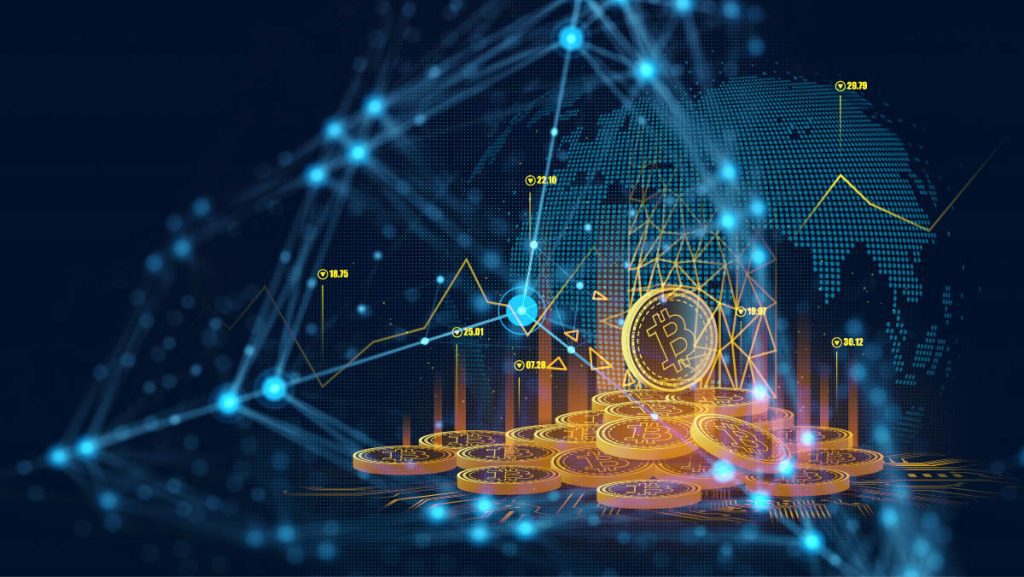
Gains in actively traded assets that can be easily attained are what is driving the first wave of applications in banking and finance. These include improved data security, simplified customer verification required by Know Your Customer (KYC) and anti-money laundering (AML) standards, faster processing, and recordkeeping facilitation. Trading is supported by the common denominator of an active, liquid market for the underlying financial instrument. The first wave of blockchain applications in FinTech has primarily concentrated on transaction processing and settlement procedures, driven by cost savings realized through digitalization and decentralized processing. Is blockchain the future of finance?
Financial Blockchain
One of the most significant advancements in the financial sector is blockchain technology, which has the potential to lower fraud, assure swift and safe exchanges, and ultimately assist in risk management within the connected global financial system. Blockchain achieves this by enhancing the ecosystem of transactional trust with sophisticated cryptography that is resistant to attack.
Blockchain has various financial applications beyond simply recording transactions and deals. In the age of digital transformation, as the world’s financial system becomes more interconnected, investors would be wise to educate themselves on how blockchain is altering the system and how to gain and control exposure to this development. By creating previously unheard-of degrees of interconnectivity and programmability across services, transactions, assets, and holdings, the digitization of financial instruments—which includes digital assets, smart contracts, and programmable finances, and the advantages of blockchain technology. These digitally enhanced tools will transform how the commercial and financial markets operate, bringing value to every interaction.
How Is Blockchain Implemented in Finance?
The potential of blockchain to effectively generate trust through smart contracts is perhaps the most significant application of technology in the financial sector. Smart contracts are identical to physical contracts, with the exception that the blockchain is used to fulfill the terms of the contract in real-time. For several reasons, smart contracts are advantageous, particularly to the finance industry. These contracts don’t need middlemen, are quickly completed if all requirements are met, and add higher degrees of security.
The use of such smart contracts is advantageous to parties seeking extremely specific results, such as when a contract is completed by both parties abiding by all the established rules and dissolves in the event of infractions. Investing is a good illustration of this. With less counterparty risk and faster issuance and settlement times, blockchain can streamline banking and lending services. It enables real-time financial document verification and authenticated documentation and KYC/AML data, lowering operational risks.
Due to the low cost of blockchain, financial startups have an opportunity to compete with established banks, hence encouraging financial inclusivity. Due to limitations like minimum balance requirements, limited access, and banking fees, many consumers are searching for banking alternatives. Blockchain may offer a hassle-free alternative to traditional banking that makes use of mobile devices and digital identification.
So while the answer to the question: is blockchain the future of finance remains quite abstract, the acknowledged truth is that blockchain is already playing a critical role in shaping the financial framework and economies worldwide. And it goes without saying, there while there is no indecisive answer, blockchain’s extensive potentials have yet to be revealed and advantaged as the world is just embracing this decentralized technology and integrating it into its various aspects.
Inside Telecom provides you with an extensive list of content covering all aspects of the tech industry. Keep an eye on our Technology section to stay informed and up-to-date with our daily articles.